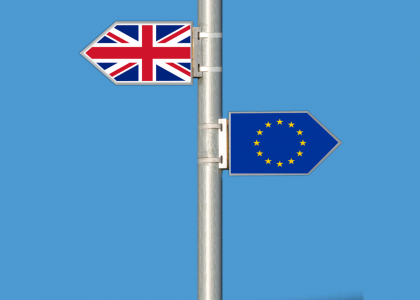Despite numerous calls for a ‘People’s vote’ on Brexit, Labour should persevere in resisting another referendum, if it is to win a majority at the next general election.
There has been significant pressure in the last few months for Labour to fully back the ‘People’s vote’ campaign for a ‘final say’ on Brexit, in the form of a second referendum. The Labour Leader, Jeremy Corbyn has received heavy criticism from within his own party for his generally unsympathetic view on the campaign, but only recently, due to the recent haemorrhaging of support to unambiguously pro-remain parties, Corbyn has agreed a change of Labour policy on the issue.
He has now challenged the next Conservative leader to hold another referendum in order to avoid a “no deal or damaging Tory Brexit”, and crucially stated that Labour would campaign for a Remain vote in that eventuality. Despite this shift in his position, Corbyn still does not express what he would do if he won a general election and was put in charge of the whole Brexit process himself. It is therefore reasonable enough to assume that his previous position of trying to renegotiate a new deal with the EU still holds.
It would be a grave error for the Labour party to change course now and explicitly support a ‘People’s vote’, although I can certainly see why it would be tempting. Only last May, pro-second referendum parties including the Lib Dems and Greens, gained a combined 900 councillors in the local elections, followed by an even larger victory at the European elections, receiving over 40% of the popular vote. But this doesn’t mean Labour should follow suit.
European elections tend to provoke more protest votes, due to its proportional voting system, and perceived lack of importance in the minds of the British public at large. The historical lack of engagement means that only the most politically motivated people turn out to vote, skewing support towards parties with stronger positions on either side of the Brexit divide. Which can also be seen through the incredible rise of the Brexit party, winning the EU elections only months after launching.
The turnout for these recent European elections was only 37% in the UK, far below turnout figures from previous general elections and the EU referendum itself. Moreover, Labour needs to remember that they are a traditional party of government in this country – which can hardly be said of the Liberal Democrats and Greens – and therefore have a responsibility to represent the whole country, and not take partisan positions on an issue which splits the nation down the middle.
Labour must understand that they are in a uniquely tricky position. Over a third of the party’s MP’s have publicly backed a People’s vote (while many more back it privately), and 72% of Labour members think that Jeremy Corbyn should fully support a second referendum. However, when analysing the 2017 General election results, the British Election Study (BES) estimates that 30% of Labour voters voted to leave the EU in 2016, which amounts to around 4 million voters.
Moreover, Professor Chris Hanretty of Royal Holloway University estimated that 61% of all Labour constituencies voted to leave the EU in 2016. Even more strikingly, when looking at Labour’s top 45 target seats for the next general election, a staggering 80% of them voted to leave. Now of course that doesn’t mean that most Labour voters in those constituencies necessarily voted to leave, but it does give a valuable insight into the electorates which Labour need to win over at the next general election. Therefore, if Labour want to form the next government, they should be very wary of proposing a second referendum, as it may come back to bite them in the seats they need to win most. Striking the right balance between representing their mostly remain supporters, and the 4 million who voted leave, was never going to be easy, but that doesn’t make a ‘People’s vote’ the solution.
Furthermore, although it can be easy to forget sometimes, Twitter doesn’t actually represent the prevailing mood of the country. So, while the skilfully run ‘People’s vote’ campaign has successfully managed to create the impression that a second referendum has large popular support, when analysing the polling data it isn’t quite so clear. As Professor John Curtice points out, the framing of such questions matters greatly. It is true that when the public are asked in polls whether they support a ‘People’s vote’ on Brexit, a plurality answer yes. However when polls refer to a ‘second’ or ‘new’ referendum rather than a ‘People’s vote’, the results reverse and instead show a lack of support for another vote.
High profile figures in the party such as Deputy Leader Tom Watson claim that the party cannot “sit on the fence” regarding Brexit, while previous leader Tony Blair believes keeping both sides happy “is not possible”. However, Labour has been right to walk the tightrope on Brexit and should continue to resist the temptation of fully backing a second referendum. The country is split down the middle on this highly divisive issue, so why reopen the old wounds of the last campaign, when having another vote is also unlikely to resolve the situation anyway? Do you really think Leave supporters are going to accept the legitimacy of such a vote, when the result of the original referendum has yet to be implemented?
You don’t bring the country together by picking a side, you do so by compromise and democratic principle. Jeremy Corbyn was right to say, “Labour will never be the party of the 52% or the 48%”, but backing another referendum would clearly put the party in the camp of the 48%.
You may be asking: ‘surely you can support the idea of a second referendum on the final Brexit deal regardless of whether you voted leave or remain in 2016’? Of course the answer is yes, but the polling evidence suggests that “the popularity of the proposal is clearly largely confined to those who wish to reverse Brexit”, with support from only one in eight leave voters. Whether you like it or not, by offering a second referendum, even if they were to remain neutral, Labour would be implicitly positioning themselves on the side of the 48% against the 52%. Especially so, when you consider that Eight out of nine organisations backing the ‘People’s Vote’ campaign are actively lobbying for the UK to remain a member of the EU.
Labour must resist the urge to back a ‘People’s vote’ and continue its strategy of constructive ambiguity. The party’s current official policy, in the event of a general election being called, is still to negotiate a deal of their own. Like Labour, I accept that a second referendum may still be the only way to resolve the Brexit mess we are in, but only if MPs continue refusing to compromise. It should only ever be considered as last resort though – otherwise the party risks significant electoral backlash in the future, not least in their traditional heartlands of the Midlands and the North.
Stephen Moore is a UEA graduate in Politics and Economics, who wrote this blog as part of his final year ‘Britain and Europe’ module, led by Pierre Bocquillon.





